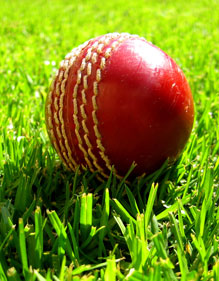|
Getting your Trinity Audio player ready...
|
 South Africa is known for its legions of die-hard sports fans, who over the years have supported their various teams through many ups and downs, triumphs and scandals. But sport is not merely a source of entertainment and a symbol of fair play – it’s also a lucrative global industry and like any industry, it can fall, and has fallen, prey to corruption.
South Africa is known for its legions of die-hard sports fans, who over the years have supported their various teams through many ups and downs, triumphs and scandals. But sport is not merely a source of entertainment and a symbol of fair play – it’s also a lucrative global industry and like any industry, it can fall, and has fallen, prey to corruption.
Now, watchdog organisation Transparency International (TI) has launched a new initiative to highlight and tackle corruption in sport, which is a disgraceful reality in numerous sporting codes around the world. These incidents undermine public trust in and support for sporting bodies and teams, and government sport ministries. The dilemma lies in keeping sports clean while ensuring that the multi-billion dollar industry remains profitable, and too often the balance tips in favour of illegality.
The goal of TI’s campaign is to ensure that sport, in the words of the Olympic Charter, will “create a way of life based on the joy of effort, the educational value of good example, social responsibility and respect for universal fundamental ethical principles”.
The organisation says to date there has not been much comprehensive research on the root causes of this type of corruption. It aims to amend this situation by providing a space for “new analysis, commentary and recommendations by leading voices in the field of sports governance to strengthen transparency, accountability and participation, and showcase the work of TI national chapters and the wider anti-corruption movement in tackling corruption in sport”.
The campaign page carries links to several key framing articles that set the scene, says TI, for understanding corruption in sport. These, and other content, will contribute to the organisation’s forthcoming Global Corruption Report: Sport.
TI attributes the rise of sport corruption to a failure by those at management level to keep pace with its growth and popularity, instead “moving from the back to the front pages for all the wrong reasons: cash-for-votes, botched investigations into bribery allegations for major events, omertà in the face of systemic doping, spiralling costs for white elephant stadia, and the infiltration of organised crime into low-risk, high-reward match-fixing”.
Enlisting the help of experts
Besides raising awareness by writing, blogging and investigating, Berlin-based TI has engaged with European professional sports leagues on match-fixing prevention programmes, and on governance reform processes with Fifa and the International Cricket Council.
The organisation has also convened a high-level advisory panel that includes the experience and expertise of Jens Sejer Andersen, the international director of Play the Game; Paquerette Girard-Zappelli, the secretary of the International Olympic Committee Ethics Commission; and Richard Pound, former president of the World Anti-Doping Agency and former vice president of the International Olympic Committee – among others.
Speaking to TI, Andersen noted that in his view, the turning point in attitudes towards corruption in sport came in late 2010, when the Sunday Times of London started revealing how “Fifa executive committee members were ready to sell their votes for money for the 2018 and 2022 World Cups”. When Russia and Qatar were controversially selected for the respective events, public awareness “of older stories about Fifa’s corrupt past done by investigative journalists” was renewed.
Sport corruption runs deep
Corruption in sport most commonly takes the form of doping, match fixing, undue influence, gambling, vote rigging, bribery, points shaving or embezzlement. These may be committed by management, competitors or officials.
In his book Sports law in South Africa, Andre Louw writes that corruption in sport is more often than not closely connected to sports-related gambling. Illegal gambling, a 2014 report issued by the International Centre for Sport Security (ICSS) has revealed, is often a front for money laundering – US$140-billion is laundered annually through sport betting, said the ICSS, while football and cricket are the sports most targeted by criminals.
International and local football is replete with bad news stories – match-fixing scandals have erupted in Germany, Brazil, Italy and Turkey, to name a few, within the last 10 years.
South Africa is not exempt – one only has to think of the match-fixing scandal said to have taken place before the 2010 Fifa World Cup and which is now in Fifa’s control. In November 2014 a local football referee was jailed for four years for corruption.
The Athletics SA debacle at the beginning of the decade is a low point, as is the long-running corruption scandal in world cricket – some South African players including Nicky Boje, Herschelle Gibbs and the late Hansie Cronje were implicated in the early 2000s. A few years ago Cricket South Africa was in the firing line for alleged mismanagement and corruption.
South African sports journalist Graeme Joffe has made it his mission to expose corruption in the local sector, particularly in the awarding of lottery funds to sporting bodies or projects – Joffe wants every cent of these disbursements accounted for. His website Sportsfire Daily carries a wealth of information relating to his ongoing investigations.
SA has legislation relating to corruption in sport
The Prevention and Combating of Corrupt Activities Act (Precca) makes provision for the legal classification of corruption as a criminal act. It has a wide area of application, but in part four, section 15, it makes provision for corruption relating to sporting events, followed in section 16 by corruption relating to games of chance or gambling games.
Precca states that anyone who, directly or indirectly,
(a) accepts or agrees or offers to accept any gratification from any other person, whether for the benefit of himself or herself or for the benefit of that other person or of another person; or
(b) gives or agrees or offers to give to any other person any gratification, whether for the benefit of that other person or for the benefit of another person-
(i) in return for-
(aa) engaging in any act which constitutes a threat to or undermines the integrity of any sporting event, including, in any way, influencing the run of play or the outcome of a sporting event; or
(bb) not reporting the act contemplated in this section to the managing director, chief executive officer or to any other person holding a similar post in the sporting body or regulatory authority concerned or at his or her nearest police station; or
(ii) as a reward for acting as contemplated in subparagraph (i); or
(c) carries into effect any scheme which constitutes a threat to or undermines the integrity of any sporting event, including, in any way, influencing the run of play or the outcome of a sporting event,
is guilty of the offence of corrupt activities relating to sporting events.
Precca defines a sporting event as “any event or contest in any sport, between individuals or teams, or in which an animal competes, and which is usually attended by the public and is governed by rules which include the constitution, rules or code of conduct of any sporting body which stages any sporting event or of any regulatory body under whose constitution, rules or code of conduct the sporting event is conducted”.






